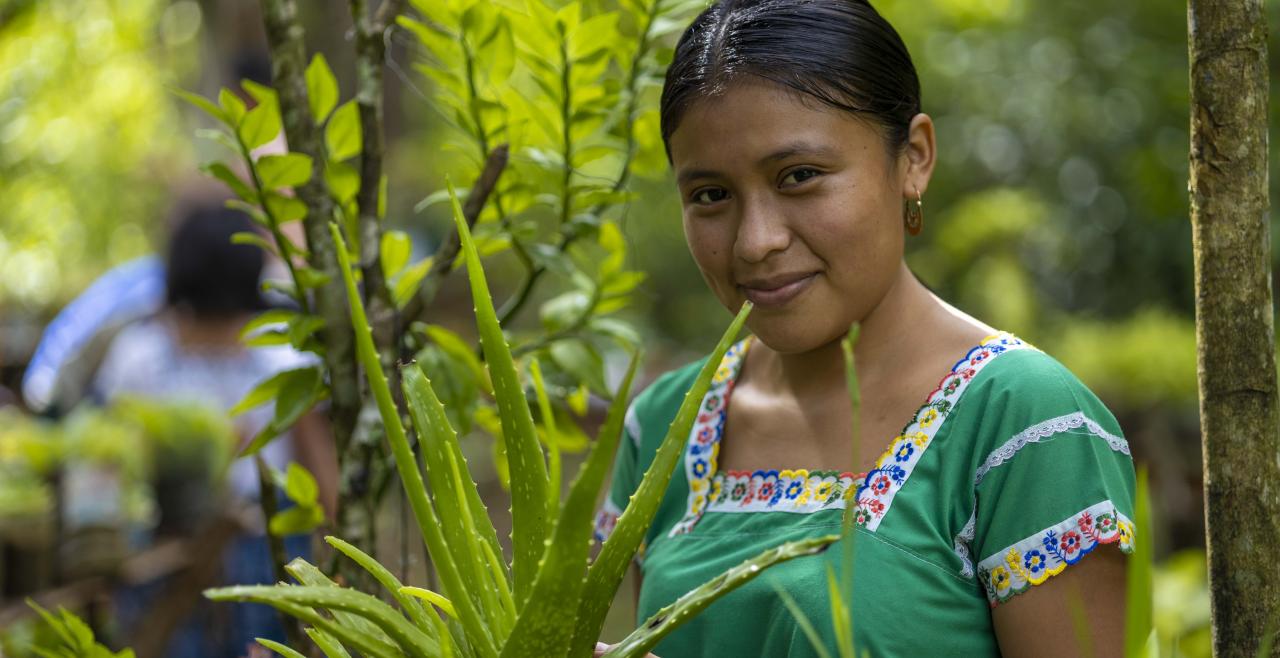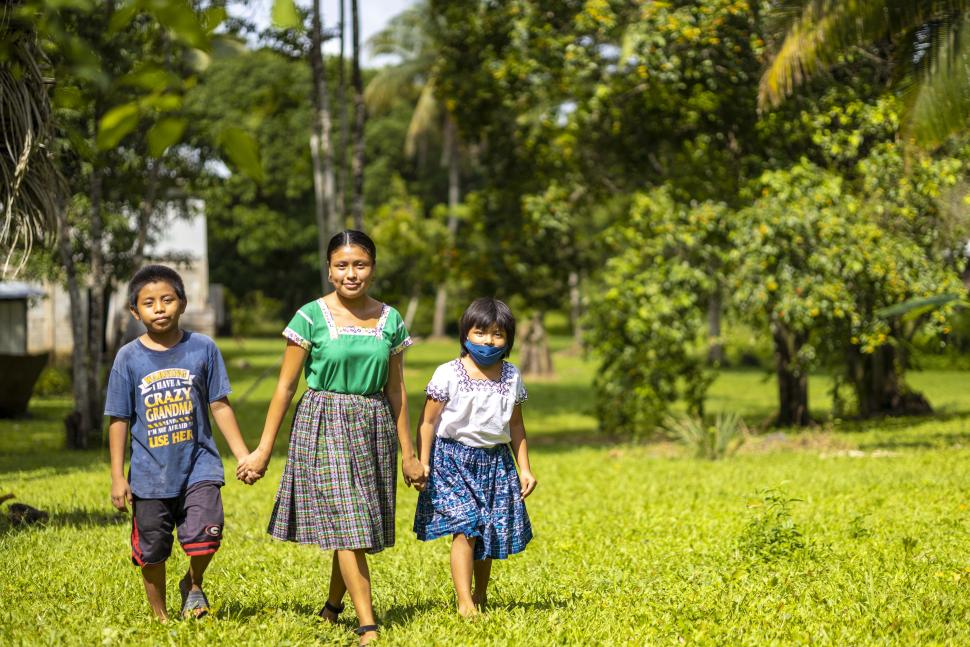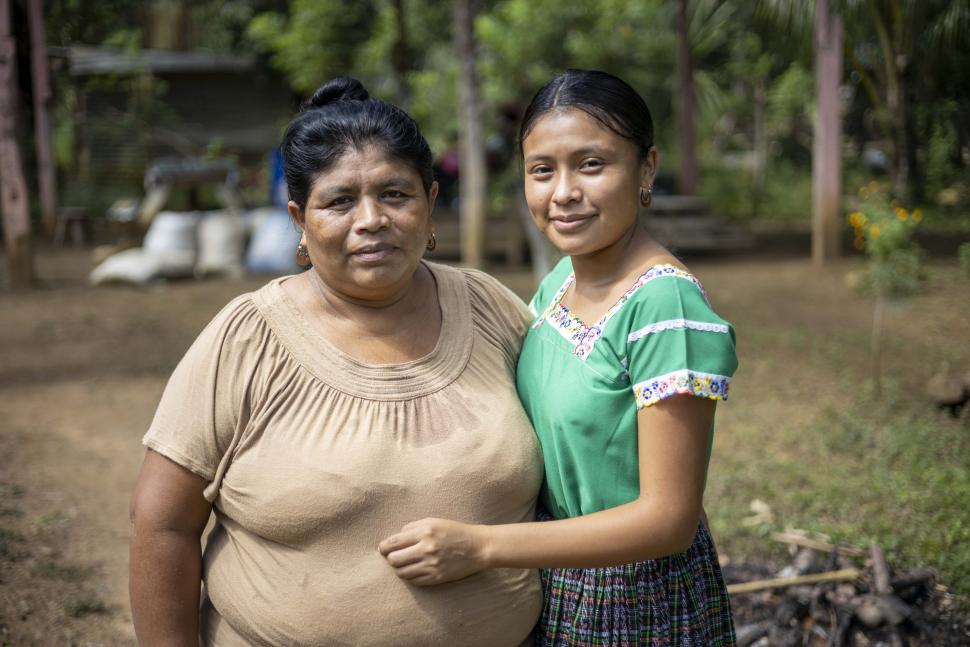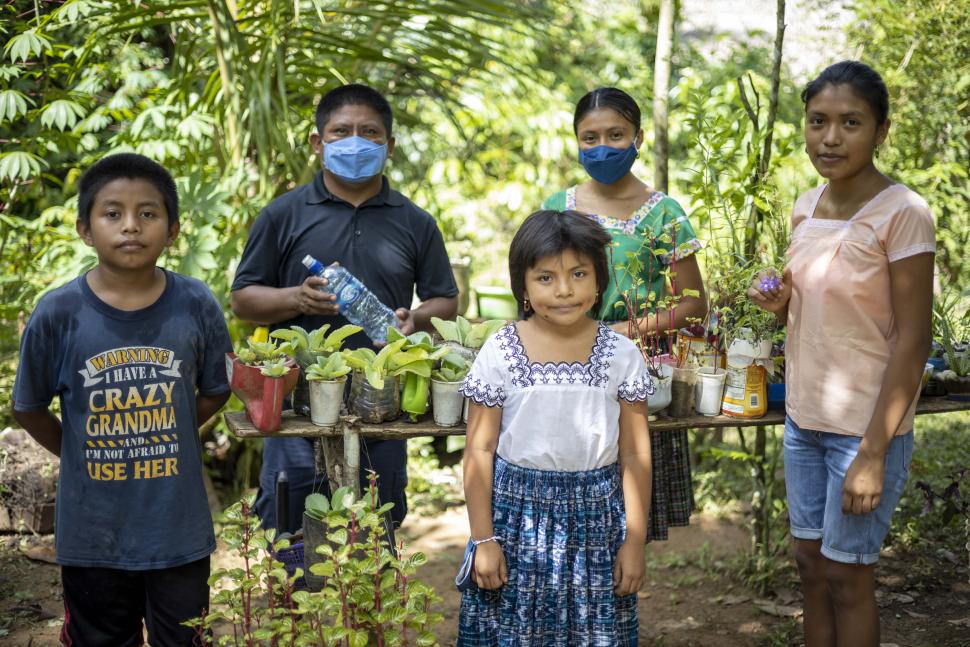In Belize, young people are helping to eliminate violence one family at a time

TOLEDO DISTRICT, Belize - For 19-year-old Christa Salam, being a youth advocate leader is a dream role. In her hometown of Jacintoville, southern Belize, Christa leads a youth group of 10 boys and girls, sharing her passion for her community and the environment with the next generation.
“I love children,” said Christa. “Their smiles just light you up and with this [group], I teach them how to take care of the environment, about their rights and family.”
Christa is part of a Spotlight Initiative-supported programme with Toledo Institute for Development and the Environment (TIDE), which combines learning about children’s rights and family violence with caring for the environment and the community. The programme addresses family and gender-based violence by using community-based youth groups for outreach and education.
Christa named her youth club ‘J-roots’, a reference to both the community where she lives and the environmental work they do.
A community star
In communities like Christa’s, men are often considered the heads of the family, with girls and women typically having little education or paid work outside the home.
When Christa’s father passed away while she was still young, Christa’s mother fulfilled a promise to him that all seven of their children would finish school – including Christa and her four sisters. Although Christa had to take a break from school due to financial challenges, she recently returned and is currently putting herself through university, studying Natural Resources Management at the University of Belize.
“My father was known in our community as ‘Chachim’, meaning ‘star’ in our Maya language,” she says, her voice cracking. “I know he is watching down on me and I know I am making my father and mother proud.”
“I know my father is watching down on me and I know I am making my father and mother proud.” - Christa Salam, 19, Youth Advocate Leader
She honours her father's passion for education by helping the girls and boys in her group with their own learning. She assists the pre-school aged children with motor skills and writing, and supports the 6- to 10-year-olds with school assignments. This is especially critical during the pandemic, when many children are trying to navigate remote learning from home and do not have parents who can help them.
Despite limitations for social gatherings due to COVID-19, Christa also organizes education on family violence. She recruits families through her environmental work, which includes games and clean-up activities, and even goes house to house with the permission of the village leaders to get the message about violence to as many people as possible.
Before the programme, she had limited knowledge of what constituted family violence but quickly recognized that it was an issue in her community and neighbouring communities. Despite the prevalence of violence, she can already see positive change. She says one club member was able to identify that family violence was happening in his household and has started talking to his mother about what he learned from Christa’s sessions.
The collective impact of outreach
“Christa is very responsible, she shows leadership and is willing to pass on her knowledge to others,” said Federico Cal, Education Coordinator for TIDE. He added that Christa is one of 12 young leaders working directly with him who helps with the programme.
He says that the collaboration with the Spotlight Initiative has allowed him to expand the scope of TIDE’s work. “Before I had eight communities I worked with, but now I have doubled that to 17. Seventeen clubs in 17 communities – my goal is to reach all 24 communities in Toledo District,” he said.
Mr. Cal added that the funding, education kits, games, sporting packages, and health and sanitation kits received through the Spotlight Initiative have allowed the clubs to positively engage over 250 children and youths directly.
“The programme is a positive addition to the work, especially during this time of COVID-19 when the children are out of school and in distance learning,” says Mr. Cal. “We have [so many] young people who want to develop their leadership skills, love their communities and love this work.”
By Perla Hinojosa with reporting from UNICEF Belize/NVISION



